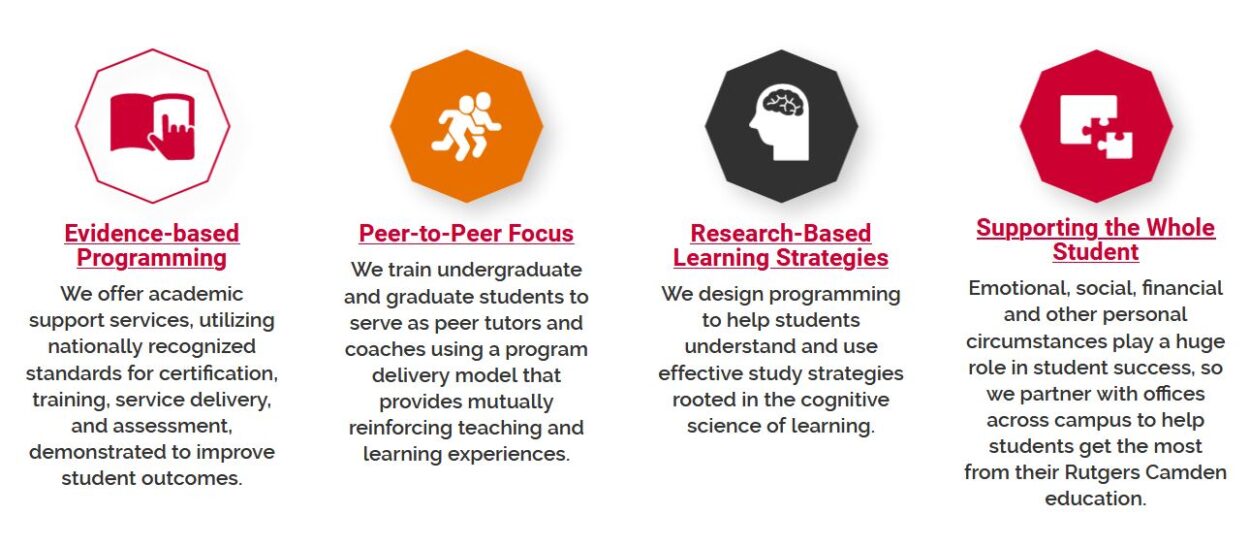Our Mission
The Center for Learning and Student Success (CLASS) provides comprehensive, high-quality academic support programs in partnership with offices and academic departments across Rutgers – Camden. Our programs and services are designed to empower students to develop skills and strategies that foster academic success and personal growth. CLASS supports students to achieve their academic goals through one-on-one tutoring sessions, supplemental instruction, workshops, and peer academic coaching.
CLASS Guiding Principles

We’re Here When You Need Us!
TUTORING
Tutoring support is available for more than 160 undergraduate courses, offered in-person and virtually, seven days a week.









